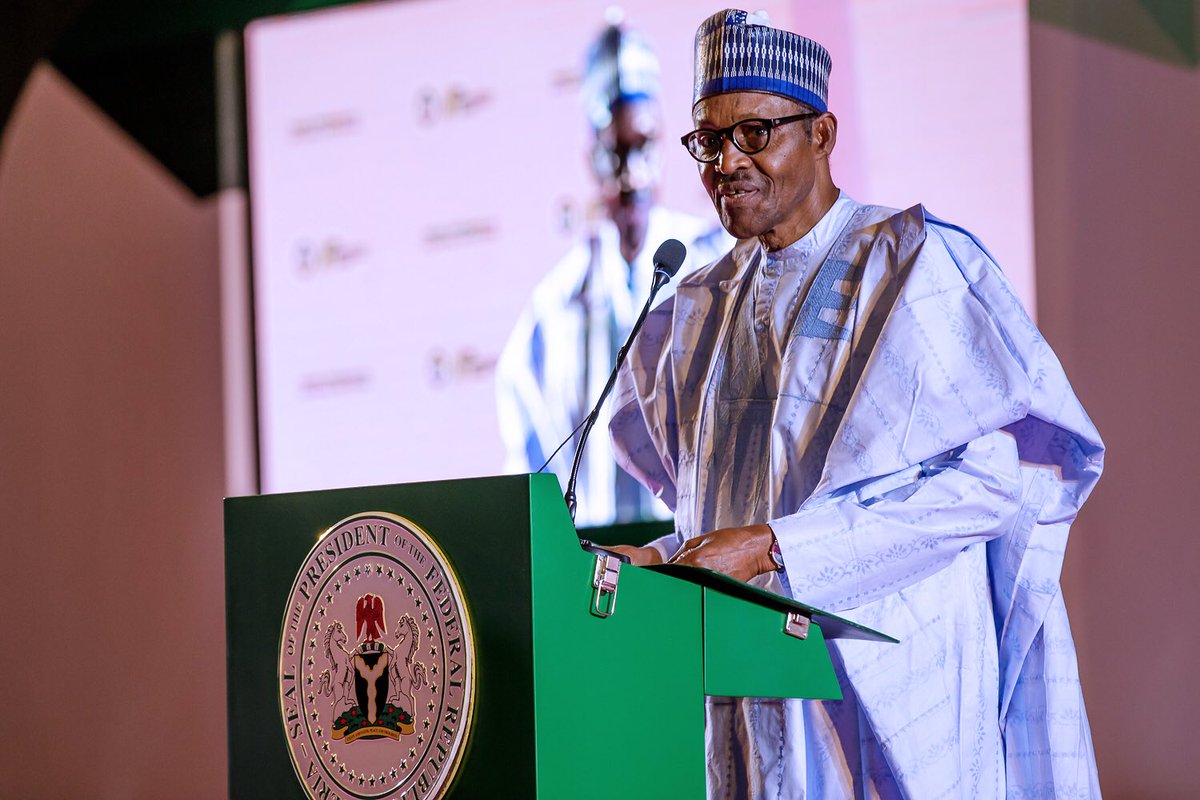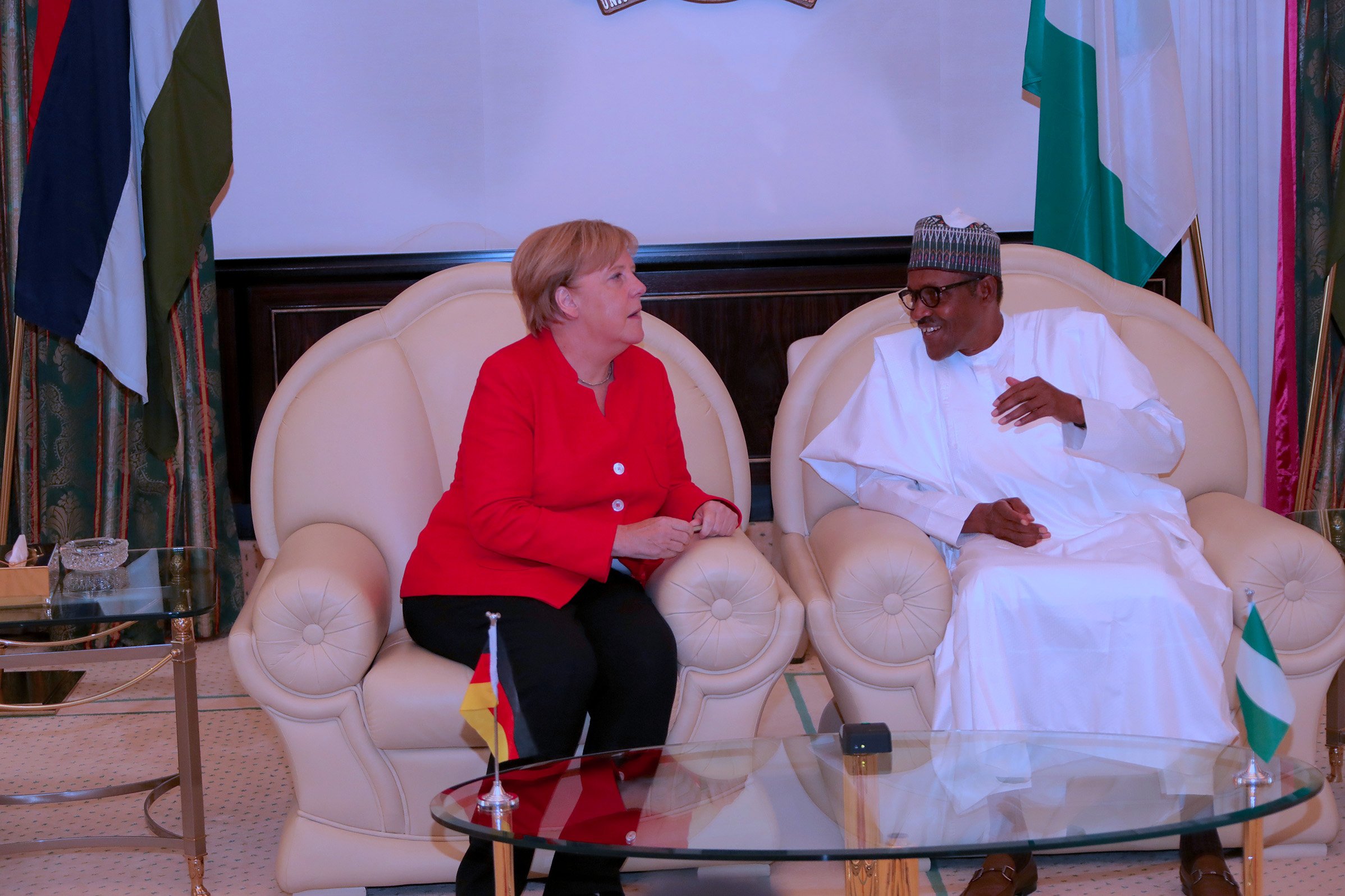Does the federal government want to chase foreign investors away from Nigeria? This is one of most frequently asked questions since the Central Bank of Nigeria (CBN) asked MTN to refund the $8.1 billion it repatriated as profits out of Nigeria from 2007 to 2015 based on “irregular certificates of capital importation”. CBN also fined four banks N5.8 billion over the certificates. We had barely finished reading the story when Mallam Abubakar Malami, the attorney-general of the federation and minister of justice, fired another letter to MTN demanding “back taxes” of $1.28 billion and N242 billion, both of which we can safely round up to $2 billion. You again, MTN? Only you?!
Coming three years after Nigeria’s biggest telephone operator was fined N1.04 trillion by the Nigerian Communications Commission (NCC) for failing to disconnect 5.2 million unregistered subscribers, the latest sledge hammer blows could kill any company — except it is in the Apple-Amazon-Shell category. The series of fines and sanctions against MTN would play into the hands of those who think the Nigerian state has an agenda against the telco. I have even heard whispers of “xenophobia” following similar negative attitude towards Multichoice Nigeria Ltd, a Nigerian cable TV company owned mainly by Multichoice Africa of South Africa.
While many Nigerians can understand the issue of “unpaid taxes” as raised by Malami, the matter of “irregular” certificates of capital importation (CCIs) is a little bit technical. This is the sense I can make out of it if I were to explain to the uninitiated. Between 2001, when it got a mobile phone licence to operate in the country, and 2006, MTN brought in $402 million to start business here: $59.4 million as shareholders’ funds and $343.1 million as loan. For bringing money into Nigeria to invest, you get a CCI as confirmation. It will, at the same time, allow you to get forex from CBN if you want to take the money out or collect dividends as an investor. That’s the job of CCI.
The CBN said that in 2007, MTN Nigeria decided to convert the $399.1 million loan (of the $402 million capital) to shares, or what they call “preference” shares. A preference share, as the name suggests, gives preference to the owner when the goodies are shared. The investor usually gets a fixed sum as dividend. Conversely, the “ordinary” shareholders feed on the leftovers. While ordinary shareholders may not get dividend at times, preference shareholders will always get a fixed sum. MTN applied for, and got CBN’s provisional approval, to convert the $399 million loan to preference shares. So it was no longer a loan.
Advertisement
There were conditions given by the CBN to MTN for the bankers to be able to convert the loan to “redeemable” preference shares for the re-issuance of the CCIs. One, MTN must sign an undertaking that no repatriation would be made either on the principal or interest of the original loan from 2001 till the conversion to preference shares was done. Two, the conversion must receive the final approval of the CBN. There were other conditions — such as listing the preference shareholders and the number of shares issued to each one of them; reflecting same in the documentation at Corporate Affairs Commission (CAC); and other basic housekeeping chores.
Where were we? Between 2007 and 2015 — a period of eight years — MTN bought forex worth $8.1 billion from the CBN to pay dividends to its shareholders abroad. Now, this is where the trouble is. The CBN said it has just investigated and found out, in 2018, that MTN’s CCIs were “irregular”. That is, MTN’s bankers did not get a “final final” approval before re-issuing the CCIs. Therefore, the conversion of loan to preference shares was null and void. CBN is now saying: “You cheeky rascals, you played a fast one on us! Return the $8.1 billion I gave you to pay dividends over eight years and I will return your naira to you at the rates you bought the forex! Thank you.” This is the sense I made out of the press statement issued by the CBN a little over a week ago.
But MTN is seriously disputing CBN’s claims and suggesting that the investigation was shoddy. According to the company, even though the $399 million loan was converted to preference shares and CCIs were re-issued, none of the dividends repatriated between 2007 and 2015 was for the preference shares. Or, to say it another way, preference shareholders have not received any dividends based on the new CCIs. MTN is also maintaining that, in fact, the loan was a tenor-free and interest-free loan. No interests have ever been paid on it. MTN is saying: “Hey guys, do your homework well! We’ve never paid any dividend on those preference shares!”
Advertisement
On the $2 billion tax bill from the AGF, MTN is also disputing the figures. MTN has been contesting some figures with the Federal Inland Revenue Service (FIRS) and Nigeria Customs Service (NCS). FIRS is demanding N84 billion, a matter that is now before the tax tribunal (although MTN has paid while contesting it). Customs is also demanding N52 billion which it says was not “properly captured” in its computations; that one too is still a subject of negotiations. NCC, on its part, is not asking for anything from MTN. Adding N84 billion to N52 billion, in the worst case, will not end up at $2 billion. AGF’s demand is, therefore, being hotly disputed by MTN.
I will now make my comments. I am not among those saying foreign investors will be discouraged by regulatory actions. Actually, genuine investors care about the regulatory environment. They want to be sure that the rules are clear and are meant to be obeyed. If they have fallen foul of the rules, then they know they will pay the penalty, which must have been pre-defined. Big corporations such as Shell, Google and Apple have faced heavy sanctions in foreign countries and they did not run away because of that. If Nigerian regulatory authorities are trying to enforce the rules, we should be happy and commend them and not begin to make them feel like they have just killed somebody.
However, the problem is when the rules are not clear, or are being manipulated, or are being unfairly enforced. That is what should worry us. Nobody should argue against enforcement of regulations — that is why the rule of law is integral to a market economy. But I am really disturbed by MTN’s claims that they were not given fair hearing and all the documents they submitted for scrutiny were not even properly examined before the demands were made on them. Arbitrariness really, really bothers me. If it is true that investigators from the CBN and Office of the AGF ignored the evidences presented to them by MTN, then that would be catastrophic.
I understand that in calculating the “back taxes”, the Office of the AGF applied a flat rate of 10% for all withholding taxes (WHT). It also applied VAT to all items. WHT is usually applied at different rates — 10%, 7.5% and 5% depending on the item. In OAGF’s calculations, though, everything was charged at a flat 10%. Some items that are not VATable were also subjected to VAT by OAGF. These include jobs that did not involve the importation of equipment into Nigeria as well as funds from the International Finance Corporation (IFC) which are tax-free by World Bank treaty. I would think taxation matters of this nature should involve the FIRS since that is their job description.
Advertisement
I am also not among those saying because MTN is so big it should be treated with kid gloves. I’m sorry: the rules must apply to every player, big or small. I know we need all the foreign capital that we can get to breathe life into the economy, but then ground rules are ground rules. What I will not support, nonetheless, is targeting MTN for the enforcement of rules. MTN is the poster boy for foreign investment in Nigeria and we do not need to bully them. In addition to the capital they brought in 2001, they have been investing averagely $1 billion in the economy yearly. We have every reason to be fair to them without condoning infractions. We have to be transparently fair.
I would also appeal to the regulators to be less sensational. Some of these issues are sensitive and could induce negative chain reactions — and the damage might be irreversible. All facts must be on the table and all issues properly examined before actions are taken, not while discussions are still ongoing, in this age of whistle-blowing induced by 5% commission. No agency should create the impression that it is working to an answer. Regulation should be a balancing act; decisions should be arrived at only after carefully considering all sides, as well as immediate and future implications. I want firm regulation, I want sanctions for infractions — but justice be seen to be done.
In sum, I do not want to believe that the government has an agenda against MTN. While the telco’s failure to disconnect unregistered subscribers in 2015 was indefensible and they are still paying the penalty, I believe the disputes with CBN and OAGF should be carefully looked into to see that justice is truly and genuinely served. Issues like these are most certainly going to end in arbitration if the parties continue to maintain their positions. Whatever the case may be, still, the government has to be civil until there is a final resolution. Our ability to resolve all these regulatory issues with decency will count a lot in attracting more investments. It is not warfare. Maturity.
AND FOUR OTHER THINGS…
THE DISASTERS
Advertisement
I woke up on Friday to the worrying news that some parts of Abuja were experiencing earth tremors. Managing information around the natural phenomenon is as important as managing the event. Things are built around myth and hysteria in Nigeria and if care is not taken, all kinds of fake theories, fake news and knee-jerk reactions would take over. When the Ikeja Cantonment bombs shook Lagos to its foundations in January 2002, 99% of the deaths were from the stampede fuelled by fear and rumours several kilometres from the scene of the explosions. We are already managing the national disaster called Nigeria — we cannot afford to add natural disaster to it. Shivering.
RESTRUCTURING WARS
Advertisement
It was interesting reading the exchanges between Vice-President Yemi Osinbajo and former Vice-President Atiku Abubakar over the burning issue of restructuring. Atiku has hinged his presidential bid on restructuring — a theme that seems to resonate with many southerners and the middle belters — while Osinbajo has tried to refine his understanding of the highly political, or should I say politicised, concept. I am cuddling my popcorn and soda (as Americans call it), holding my remote control firmly, full of expectations of explosive debates ahead of the 2019 elections. I love debates, and I hope there will be plenty this time around. Imperative.
THE PDP CROWD
Advertisement
While it appears no heavyweight will challenge President Buhari for the APC presidential ticket, the real action will be in PDP, where “men of timbre and calibre” (RIP Chief KO Mbadiwe) are all set to do battle. They are so many I have lost count. There are rumours that some of them are playing the role of spoilers and will end up fomenting trouble after the primary, but so did we hear too in 2015 when APC was loaded with heavyweight presidential aspirants. APC did not break up thereafter, forcing Dr. Doyin Okupe to swallow his words. I am for competition — losers can be assured they were beaten in a contest. Democracy itself is nothing but competition. Exciting.
AND FINALLY…
Advertisement
Comrade Omoyele Sowore, publisher of Sahara Reporters and presidential aspirant, raised some dust recently when he spoke about making Nigeria export marijuana for medical purposes. He said: “We have to start taking care of our weed… Some of the best weeds in the world are grown in Ekiti state. Our NDLEA should get the memo in advance that Nigeria will be exporting weed to cure cancer in other parts of the world.” He seems to be making a case for medical marijuana. My major worry, though, is that if the containers carrying weed “Catch a Fire” at the seaports and the Nigerian customs officers start feeling “irie”, the “Rastaman Vibration” will have no part two. Thunder!
Add a comment







